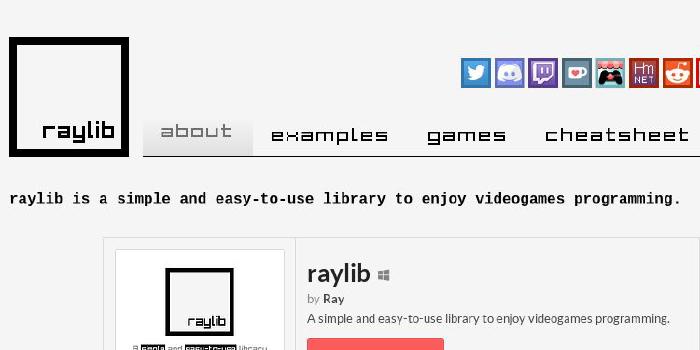martinmarinov/TempestSDR

Remote video eavesdropping using a software-defined radio platform
| repo name | martinmarinov/TempestSDR |
| repo link | https://github.com/martinmarinov/TempestSDR |
| homepage | |
| language | C |
| size (curr.) | 99105 kB |
| stars (curr.) | 679 |
| created | 2013-11-28 |
| license | GNU General Public License v3.0 |
TempestSDR
This project is a software toolkit for remotely eavesdropping video monitors using a Software Defined Radio (SDR) receiver. It exploits compromising emanations from cables carrying video signals.
Raster video is usually transmitted one line of pixels at a time, encoded as a varying current. This generates an electromagnetic wave that can be picked up by an SDR receiver. The software maps the received field strength of a pixel to a gray-scale shade in real-time. This forms a false colour estimate of the original video signal.
The toolkit uses unmodified off-the-shelf hardware which lowers the costs and increases mobility compared to existing solutions. It allows for additional post-processing which improves the signal-to-noise ratio. The attacker does not need to have prior knowledge about the target video display. All parameters such as resolution and refresh rate are estimated with the aid of the software.
The software consists of a library written in C, a collection of plug-ins for various Software Define Radio (SDR) front-ends and a Java based Graphical User Interface (GUI). It is a multi-platform application, with all native libraries pre-compiled and packed into a single Java jar file.
Release
- JTempestSDR.jar is the self contained multi platform GUI executable. It should work with just a double click on most Windows/Ubuntu x86/x64 based machines.
- [Download dlls] (https://github.com/martinmarinov/TempestSDR/tree/master/Release/dlls) contains the precompiled dll files for Linux/Windows x86/x64 which you can use in your own project under the GNU GPL license.
Double click on the JTempestSDR.jar file to launch. If it fails to launch, you will need to recompile the project.
Building the executable
This is the Java wrapper and GUI. It builds all projects and supported plugins including the Java GUI itself. Go into the JavaGUI folder and type in
make all
If it fails to find “jni.h”, you should run one of the following commands:
make all JAVA_HOME=path_to_jdk_installation
On Windows 8 x64 this could look like
make all JAVA_HOME=C:/PROGRA~2/Java/jdk1.7.0_45
To force compilation for X64 or X32 (in case your compiler supports it), do the following
make all JAVA_HOME=C:/PROGRA~2/Java/jdk1.7.0_45 ARCHNAME=X64
On Ubuntu with openjdk it could look like
make all JAVA_HOME=/usr/lib/jvm/java-6-openjdk-amd64
On Mac OSX commmand might look like
make all JAVA_HOME=/Library/Java/JavaVirtualMachines/jdk1.8.0_111.jdk/Contents/Home
Note: This will also compile the plugins. Some of them require additional libraries! You can disable the plugin compilation by editing the Makefile in JavaSDR.
Windows
You need to have MinGW installed.
On Windows, this will also build the SDRplay RSP plugin. You first need to install the SDR driver from http://www.sdrplay.com/
Example of how to compile for x64 Windows
export PATH=$PATH:"/cygdrive/C/Program Files/Java/jdk<put_your_version_here>/bin"
make all JAVA_HOME=C:/PROGRA~1/Java/jdk<put_your_version_here> CC=x86_64-w64-mingw32-gcc ARCHNAME=X64
And replace <put_your_version_here> with your JDK version.
If running SDRplay Plugin, make sure the mir_sdr_api.dll and sdrplay_api.dll are in the library path (or in the same directory as the executable). You can find the dll in C:/Program Files/SDRplay/API/x86 or C:/Program Files/SDRplay/API/x64 depending on your architecture.
If you don’t intend to use the RSP dongle, you can skip this step by editing the Makefile in the JavaGUI directory. Remove TSDRPlugin_SDRPlay from line 89, changing it from
PLUGINS += TSDRPlugin_SDRPlay TSDRPlugin_ExtIO
to
PLUGINS += TSDRPlugin_ExtIO
Linux and OS X
On Linux and OS X, compiling the GUI will also compile the UHD driver, so you will need to have UHD and the corresponding boost libraries installed (UHD will install them automatically). If you don’t want the UHD drivers, then you can skip their compilation by removing the line 91 for Linux and line 93 for OS X from the Makefile in the JavaGUI directory.
Building the libraries
All project could be built both with Eclipse and make as well.
TempestSDR library
Enter the folder and type
make all
This will produce the library which could be found in the bin subdir. The headers you need to interface with it are located in src/include.
Plugins
Go into a plugin directory and type
make all
This should work unless there is something specific for the plugin itself. Look for a README in this case.
Folder Structure
The different folders contain the different subprojects. The TempestSDR folder contains the main C library. The project aims to be crossplatform with plugin support for SDR frontends in different folders.
Requirements for Building
The project is built with Eclipse with the CDT plugin (but this is not required). Currently it supports Windows, Linux and OS X. Some frontend plugins might not be crossplatform. You also need a Java Development Kit (JDK) installed.
Windows
You need to have MinGW installed and gcc and make commands need to be in your path. Also javac and javah also need to be in your path.
Linux
To be announced soon.






